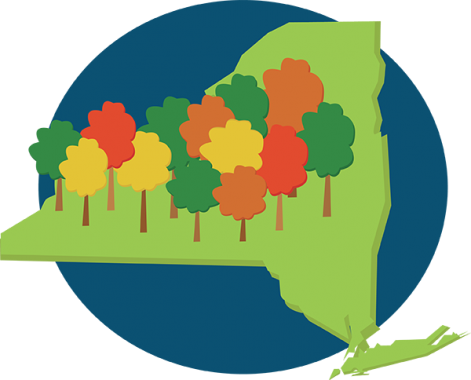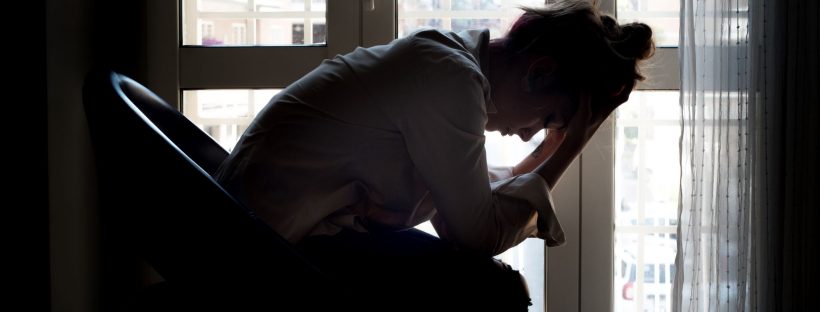Lisa Haskins, of Monroe County, wished she spoken up sooner about how domestic violence impacted her family. She wished more people talked about it so that domestic violence victims don’t feel ashamed or are afraid to speak up.
Growing up, Lisa said domestic violence occurred in her family. Lisa said the cycle of abuse continued over generations. Her sister found herself in an abusive relationship as an adult, she added. After years of verbal and emotional abuse, nearly five years ago Lisa’s sister committed suicide.
Last year, Lisa broke her silence and shared a Facebook post in honor of Domestic Violence Awareness Month in October.
Helping Those Who “Don’t Have a Voice”
“Today I take a stand, as I should every day…for those women who have lost their voice, their self-worth, their self-love, their self-compassion, their confidence, their hope, and for some their lives” she wrote in the post.
“Domestic violence doesn’t always have visible bruises. Sometimes there are signs, and sometimes we may see nothing. For any woman suffering from domestic violence, dig deeper than you ever have in your life and know that you are worth loving. You deserve joy and kindness and freedom to live. There is help. There is safety, even though it may not seem like it.
Every day I miss my sister. She may have committed suicide, but domestic violence is what killed her. I stand for those who no longer have a voice…like her. We have to speak up because it might just save a life. And one life can mean the world to someone. I know. I live every day without my sister.”
After speaking up, Lisa said she felt as if a weight was lifted from her shoulders.
“I feel as if we sit here and live in silence and worry that the abuser will come back and threaten us, but all that does is give him control,” she said. “That’s why domestic violence is so persistent. Many people fear taking the risk and speaking up.”
A Perfect Storm for A Domestic Violence Crisis
According to the Centers for Disease Control and Prevention, 1 in 3 women and 1 in 4 men in the United States have experienced violence from a partner in their lifetime — and the risks to victims can be severe. During the COVID-19 pandemic, news outlets across the country have reported a rise in domestic violence. Victims of domestic violence face more social isolation in general, even when there isn’t a widespread pandemic. Abusers have more tactics at their disposal when victims can’t easily get away from home.
“With the numbers of people that continue to get sick, the growing unemployment rate, and an increase in anxiety and financial stress, this pandemic has created the perfect storm for an exacerbated domestic violence crisis,” said Dr. Sudha Bakshi, Excellus BlueCross BlueShield medical director.
Lisa: What Gives Her Hope
Lisa said knowing more about local groups that help domestic violence victims gives her hope. It is important for those in high risk situations to know that courts and many domestic violence organizations, phone hotlines, and shelters are available to help. Domestic violence organizations are also working to develop new strategies to support victims during the pandemic, by offering hotline services through online chats or texting, in case victims cannot call with an abuser at home.
Excellus BCBS is proud to provide support to these domestic violence organizations across upstate New York as part of its response to the COVID-19 pandemic:
- Family Justice Center, Buffalo, NY
- Pinnacle Community Services, Niagara Falls, NY
- RISE, Endicott, NY
- Vera House, Syracuse, NY
- YWCA Mohawk Valley, Utica, NY
- Resolve, Rochester, NY
- Willow, Rochester, NY
Let Victims Know They’re Not Alone
Lisa said it can be challenging to convince domestic violence victims to speak up and get help.
The victim may fear the abuser, they may have a skewed sense of normal if they grew up in this environment, or after years of abuse start to believe that they’re just not worth it.
One option? Offer to accompany your friend or loved one to check out an organization that supports domestic violence victims. “That may help them consider getting help,” she said.
In the end, Lisa wishes that more people talked about domestic violence.
“Not talking about it adds to the stigma,” she said. “And, how else will victims know they’re not alone?”
If you or anyone else needs help, please contact the National Suicide Prevention Lifeline at 1-800-273-8255. The lifeline is open all day, every day.
- Healthy Snacking Tips from a Football Party Veteran - February 2, 2022
- Why I Will Be in Line for A Flu Shot This Year - February 21, 2021
- Small Steps to Prevent Big Falls: Protecting Older Adults from Injury - February 20, 2021


